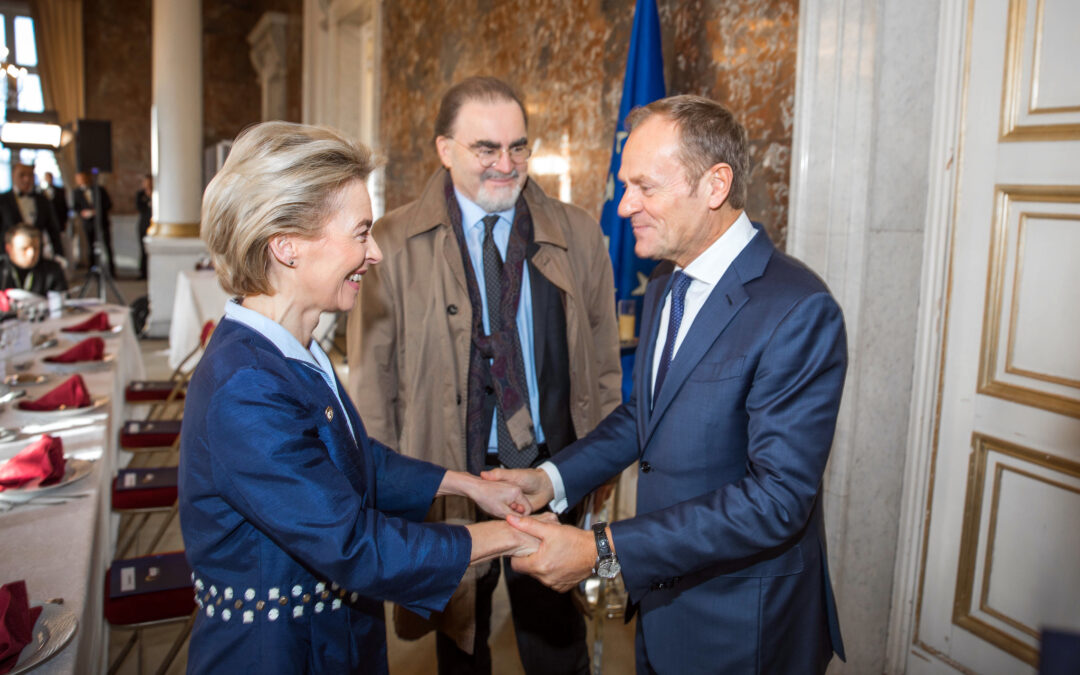Opposition leader Donald Tusk has pledged that, if his party wins power at October’s elections, then on his first day in office he will unblock EU funds designated for Poland but which have been frozen by Brussels over rule-of-law concerns.
In response, politicians and media linked to Poland’s ruling party have said that Tusk’s remarks prove the EU is simply using the rule of law as a pretext to change the government in Warsaw.
The dispute with Brussels – and within Poland's own ruling camp – over unlocking frozen EU funds offers both dangers and opportunities for the ruling party ahead of this year's elections, writes @AleksSzczerbiak https://t.co/PRNE8lUX4Q
— Notes from Poland 🇵🇱 (@notesfrompoland) January 5, 2023
Speaking at an election rally in Sopot on Sunday, Tusk noted that “there is only one country in the entire European Union to which not a single euro, not a single zloty, has reached” from the bloc’s post-pandemic recovery funds.
Brussels has been withholding almost €36 billion of such funds from Poland, in particular due to concerns over judicial independence. Last year, it agreed a series of “milestones” with the Polish government in order to unlock the money. But the European Commission says that Warsaw has so far failed to meet them all.
“This is a huge [amount of] Polish money that [ruling party chairman Jarosław] Kaczyński and [justice minister Zbigniew] Ziobro have blocked,” declared Tusk, who leads the centrist Civic Platform (PO), which is the main member of Civic Coalition (KO), Poland’s largest opposition group.
“I repeat: [this is] Polish money that has not come to Poland but for which Poles will pay because the EU as a whole had to borrow this money,” added Tusk, who served as president of the European Council from 2014 to 2019.
“I make a solemn promise here: the day after the elections, the day after victory, I will go and unlock the money,” he continued. “A bit of goodwill and a bit of competence are enough…to unlock the Polish money that lies in Brussels.”
💬Przewodniczący @donaldtusk o pieniądzach z KPO👇
Dzień po zwycięstwie, dzień po wyborach, obiecuję, że te pieniądze odblokuję👇#PolskaWNaszychSercach pic.twitter.com/DFYS7sP2yy
— PlatformaObywatelska (@Platforma_org) August 27, 2023
Tusk’s remarks were seized upon by figures from the national-conservative Law and Justice (PiS) party and its associated media as evidence that, as PiS has long argued, the EU does not really care about the rule of law and is using the frozen funds to help Tusk come to power.
“Tusk admits that it is him who has blocked money from the [reconstruction funds],” headlined state broadcaster Polskie Radio, which like other public media is under the influence of PiS. “The PO leader has confirmed that the funds are part of the EU’s blackmail against Poland,” it added.
“Is Tusk, along with Brussels and German eurocrats, blocking money for Poland?” asked another state broadcaster, TVP. “Was this their joint plan when Tusk returned to Poland [as leader of PO in 2021]?”
Czy Tusk z brukselskimi i niemieckimi eurokratami blokuje pieniądze dla Polski? Czy to był ich wspólny plan, kiedy Tusk wracał do Polski?#wieszwięcej https://t.co/vQ3stvcuNR
— tvp.info 🇵🇱 (@tvp_info) August 27, 2023
Meanwhile, Jacek Sasin, a deputy prime minister, posted a sarcastic response to Tusk’s announcement on X (formerly known as Twitter).
“The EU isn’t politicised. The European elites are not trying to inhibit Poland’s economic development under PiS,” he wrote.
“And Tusk just by chance suggested that, when KO comes to power, money from the [recovery funds] will be unlocked. This is the legendary rule of law and democracy”.

Notes from Poland is run by a small editorial team and published by an independent, non-profit foundation that is funded through donations from our readers. We cannot do what we do without your support.
Main image credit: European People’s Party/Flickr (under CC BY 2.0)

Daniel Tilles is editor-in-chief of Notes from Poland. He has written on Polish affairs for a wide range of publications, including Foreign Policy, POLITICO Europe, EUobserver and Dziennik Gazeta Prawna.



















